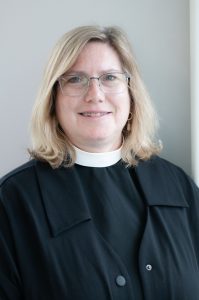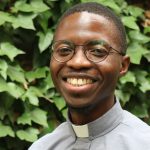In honor of National Day of Racial Healing, ELCA Racial Justice Ministries invited The Reverend Jennifer Thomas to share some thoughts about this topic with our readers.
As a person of faith, I am called to love God and my neighbor as myself. Because of this, I’m committed to learning how white supremacy culture and my own complicity in it cause harm to my global neighbors near and far — and when I know better, to do better. As a seminarian, I attended anti-racism training in the late ’90s. But my journey didn’t stop there. Even last month I learned a new term: “global majority,” a collective term for non-white people of African, Asian and Latin American descent, who constitute approximately 85% of the global population. It has been used as an alternative to terms that are seen as racialized, such as “ethnic minority” and “person of color,” or more regional terms across the globe. It roughly corresponds to people whose heritage can be traced back to nations of the Global South.
I’m a board member of the European Descent Lutheran Association for Racial Justice and a member of the Central States Synod Racial Justice Team. As a member of both organizations, I’m interested in building a network of racial justice advocates and organizers across the ELCA. I also participate in #Reformation2022, a movement to reform the ELCA. Most of the work I do as a board and team member is amplifying the voices of the global majority community, whether it be an individual or an association within our church.
When I was invited to blog this month for the “National Day of Racial Healing,” I had to look it up because it was new to me. The National Day of Racial Healing is a call to action for racial healing for all people. It is a time for contemplating our shared values and engaging together on #HowWeHeal from the effects of racism. It’s a day to come together in a shared commitment to building relationships. Launched on Jan. 17, 2017, it is an opportunity to bring people together in their common humanity and inspire collective action to create a more equitable world. The day is observed every year on the Tuesday following Martin Luther King Jr. Day.
You can’t change what you don’t know. So how much do you know about the impact of colonization on the global majority community?
When we know the truth and embrace it, we begin the process of building and strengthening right relationships with our global majority neighbors. In 2023 the Evangelical Lutheran Church in America (ELCA) launched the Truth and Healing Movement. Many resources are available to assist you and your congregation as you work on your responsibilities.
The ELCA also has ethnic associations for Ethnic Specific and Multicultural Ministries. For even more resources, visit the ELCA Anti-Racism Pledge page.
If you are of European descent within the ELCA and passionate about anti-racism and dismantling white supremacy, we invite you to join our partner list.
And plan to attend the European Descent Lutheran Association for Racial Justice Triennial Assembly, March 1-3, in Minneapolis. The registration deadline is Jan. 15.

The Rev. Jennifer Thomas is an ELCA pastor, ordained in 1998. She’s served congregations in Wisconsin, Missouri and Kansas. Her current call is as associate director for Mission Funding in the ELCA Office of the Presiding Bishop. She resides in Kansas with her husband Vance, their almost adult children, Peder and Solveig, and two adorable rescue dogs, Rose and Dumplin’. In addition to organizing, advocacy, fundraising and proclamation of the good news, Jen enjoys cooking, baking, swimming, reading and binge–watching her favorite TV shows.

